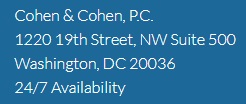With millions of cars on the market and millions more sold each year, vehicle recalls are more common than many people know. According to U.S. News, almost 22 million vehicles were recalled for safety issues last year alone. If you’re wondering what these recalls are and what you should do about them, the following information can lead you in the right direction.
What is a Vehicle Recall?
According to the National Highway Traffic Safety Administration (NHSTA), a vehicle recall is issued when the car manufacturer or NHTSA itself determines that a vehicle or a vehicle part carries an unreasonable safety risk.
- A recall can go into effect if the vehicle or part does not meet the minimum required safety standard.
- Usually these safety issues pose a risk to motor vehicle safety and/or could exist in a class of vehicles that share the same manufacturing design or equipment.
How Do I Know If My Vehicle Has Been Recalled?
If you registered your vehicle with the manufacturer after purchasing it, the manufacturer will notify you if they issue a recall on that vehicle. In order to receive the recall notice, you must make sure that your vehicle registration is up-to-date with your most current information.
There are additional resources you can use to find vehicle recalls.
- Search the NHTSA website using your car’s vehicle identification number (VIN).
- Sign up for email notifications from the NHTSA so that if a recall on your vehicle is ever issued they can notify you.
What Do I Do If My Vehicle Has Been Recalled?
If you receive a notification that your vehicle has been recalled for any reason, or your vehicle is listed on the NHTSA’s website, there are several steps to take.
- Follow any instructions given to you on the recall notice, including calling your local dealership. A dealership is usually included in your recall notice along with their address and phone number.
- Make an appointment with the dealership and bring your vehicle in for service. It is recommended that the appointment for vehicle recalls should be made within 60 days of receiving the notice.
- The dealership is required to fix your vehicle in accordance with the recall notification at no cost to you. There are serious ramifications for dealerships that do not follow these guidelines.
What Do I Do in the Event That Something Goes Wrong?
If a dealership does not perform the recall repairs at no charge to you or they refuse to make the repairs, you have legal recourse.
- Notify the NHTSA that the dealership is not acting in accordance with the recall notice and file a complaint.
- The NHTSA will ask you to provide as many details as possible; it’s important to keep any of the recall notices or important paperwork that relates to your vehicle and/or repairs for your records.
- If the above options do not resolve the issue, you can contact a personal injury or car accident lawyer Milwaukee WI relies on. If, for example the dealership did not perform that work, or perform it satisfactorily, talk to an attorney.
- If the dealership performed the work to address the recall but the issue was not resolved and that issue led to a serious accident, contact a personal injury attorney immediately. The dealership as well as the manufacturer might be liable for your injuries which can be physical, mental, emotional, or a combination.
Vehicle recalls are only issued when a serious problem is identified. If you have been harmed as a result of a known product or vehicle defect, you may be entitled to compensation for your damages. Contact a personal injury attorney immediately to determine what your legal options are and how a lawyer can help you.
 Thanks to our friends and contributors from Hickey and Turim P.C. for their insight into vehicle recalls.
Thanks to our friends and contributors from Hickey and Turim P.C. for their insight into vehicle recalls.

